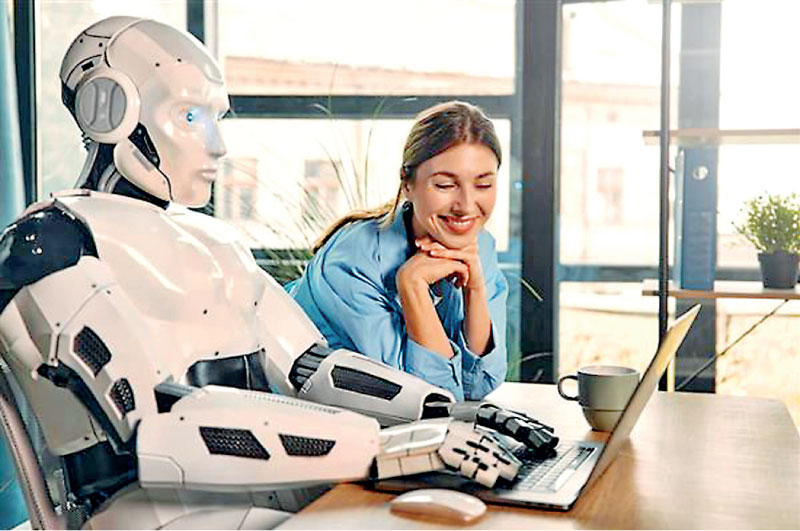Monday Feb 16, 2026
Monday Feb 16, 2026
Monday, 3 February 2025 03:03 - - {{hitsCtrl.values.hits}}

AI will not replace humans, but humans who work effectively with AI will replace those who do not
 By Stefan Dittrich
By Stefan Dittrich
As professionals in Human Resource Management, we have witnessed firsthand how technological advancements shape the workplace over and over again. The rise of Artificial Intelligence (AI) is one of the most significant transformations we are experiencing, and the question on everyone’s mind is: Will AI replace human employees? Or even me?
AI as an evolution, not a threat
History has shown us that every major technological advancement has changed the nature of work but has not eradicated human employment altogether. The Industrial Revolution automated many manual labour tasks, yet it did not eliminate the workforce. The advent of computers and the internet reshaped office jobs but did not make human employees obsolete. Similarly, AI will redefine work processes but will not eliminate the need for human expertise.
AI excels at automating repetitive, data-driven tasks, allowing employees to focus on strategic, creative, and interpersonal responsibilities. In fields such as finance, healthcare, customer service, and manufacturing, AI is already streamlining workflows, reducing errors, and providing valuable insights. However, critical thinking, emotional intelligence, and complex problem-solving—areas where human workers thrive—remain irreplaceable.
The future belongs to those who adapt
The biggest risk is not AI itself but failing to adapt to it. As businesses integrate AI into their operations, employees who resist learning AI-powered tools may find themselves struggling to keep up. On the other hand, those who embrace AI and leverage its capabilities will be in high demand.
It is no longer sufficient to have traditional job skills alone. Just as computer literacy became an essential skill in the modern workplace, AI literacy will become a key competency in the near future. Employees who understand how to work alongside AI, interpret its insights, and optimise its functions will have a competitive edge.
Humans will replace humans who use AI
A more accurate statement than “AI will replace jobs” is “humans who know how to use AI will replace humans who don’t.” Organisations will not simply eliminate jobs but will seek professionals who can enhance their roles with AI-driven efficiency. Those who proactively acquire AI-related skills—whether in automation, data analysis, or machine learning applications—will secure their place in the evolving workforce.
Embracing AI as an opportunity
Rather than fearing AI, we should view it as an opportunity. Companies must invest in reskilling and upskilling their employees, providing training programs that incorporate AI tools into daily workflows. Employees, in turn, should take initiative to familiarise themselves with emerging AI technologies and their applications in their respective fields.
AI is a powerful tool, but ultimately, it remains just that—a tool. Just as a hammer is ineffective without a skilled carpenter, even the most advanced AI will fall short without a knowledgeable operator. The hammer does not build the house; it merely assists the human who wields it.
The future of work is not about man versus machine; it is about collaboration. AI will not replace humans, but humans who work effectively with AI will replace those who do not. The key to job security in the AI-driven future is adaptability, continuous learning, and the willingness to evolve.
In short, the AI revolution is here—but those who prepare for it will not be left behind.
(The writer is a Coach and Trainer/CEO (for AI/Digital Marketing), DittRich FZ-LLC, UAE.)